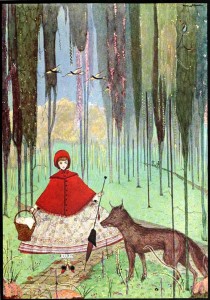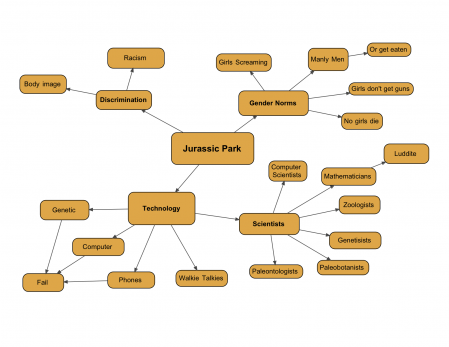His thought turned to the Ring, but there was no comfort there, only dread and danger. No sooner had he come in sight of Mount Doom, burning far away, than he was aware of a change in his burden. As it drew near the great furnaces where, in the deeps of time, it had been forged, the Ring’s power grew, and it became more fell, untameable save by some mighty will. As Sam stood there, even though the ring was on on him but hanging by its chain about his neck, he felt himself enlarged, as if he were robed in a huge distorted shadow of himself, … – The Return of the King (Tolkien, 1955).
One of the ways students collect seed ideas for writing is by recording significant quotes from things they read in their Writer’s Notebooks; things that resonate with them; things they might want to respond to. I use this blog in a similar way. My notebooks tend to be filled with equations, sketches and diagrams, while anything I can type ends up here….

I’ve been rereading Tolkien’s Lord of the Rings for the xth time (where x is a number too large to recall). As the Ring crosses the mountains into Mordor its power grows and it becomes hard to control. If the ring represents technology and its bearer, at this point Sam, represents the common person, then we see the choices facing the individual in the modern society; either to take the ring and bear the consequences of using complex, powerful technology that you do not understand, or to forgo it and accept the loss of power that entails. Sam faces what we face every day, though usually we’re unconscious of the decision.
This is also, pretty much, the central theme of Jurassic Park (I can see that this post is turning into an intertextual essay, but we’ll see). Crichton expresses the point more explicitly when he has the mathematican, Malcome, diatribe about the lack of humbleness of the creators of Jurassic Park; they build on existing technology without spending the time and effort learning how to use it. Crichton’s character believes that in putting the time and effort in mastering something, we learn to respect it, and give more though to the morals and ethics of how and if to use it. Easy to use, genetic technology is the equivalent of the Ring. It is powerful, too easy to use, and can lead to disastrous consequences.

We’ve been covering the characteristics, patterns and needs of life this last week, and, in discussing what qualifies as alive and what does not, the question of robots and computer viruses came up. Well if software does become sentient, will we have to recognize it as being alive? There’s no end to the number of science fiction books and movies that address all number of aspects of this issue. The self-aware SkyNet in the Terminator is one paranoid end-member example, but I’ve always liked James Luceno’s catholic computers in Big Empty.
However, advances in intelligent computing have not achieved sentience quite yet, and it might be a while. Yet, it would be interesting to consider a world where everyone has a computer on the brink of sentience. Oh what power would we each have then. And if these intelligent computers’ (potential) characters are colored by their interaction with human individuals, the good, the bad and the ugly, what would happen when a billion pieces of software cross the sentience threshold all at once (with the latest and greatest software update ever)?







